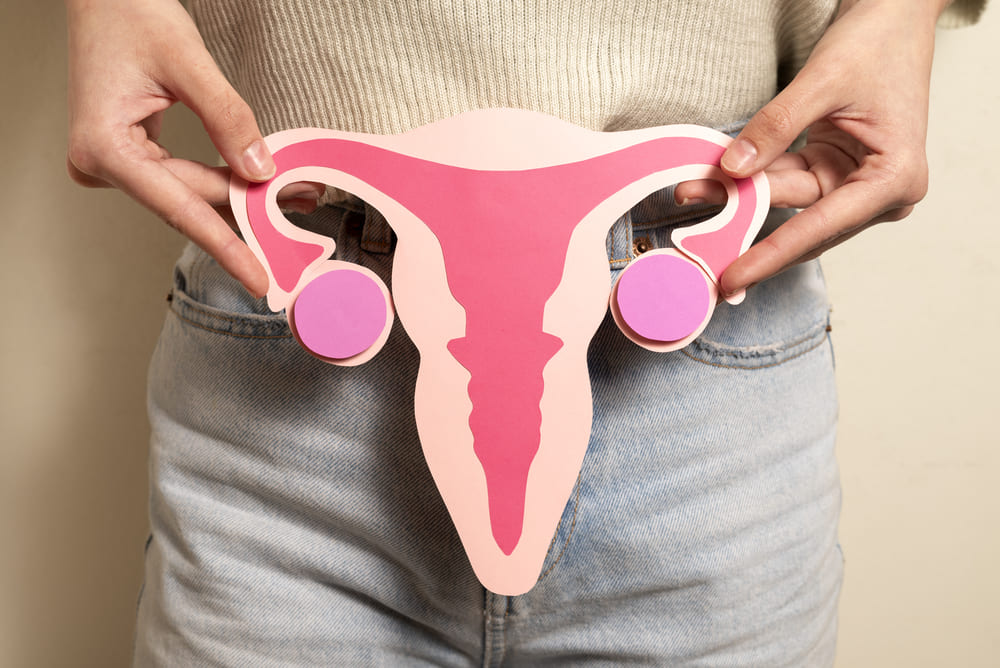A diagnosis of Polycystic Ovary Syndrome (PCOS) can raise many questions, fears, and uncertainties—especially when you’re trying to have a baby. If this is your case, the first thing you should know is that yes, it is possible to get pregnant even with PCOS, although it may require a specialized and personalized medical approach. In this article, we’ll explain what PCOS is, how it affects fertility, and what options are available to help you achieve your dream of becoming a mom.
What Is Polycystic Ovary Syndrome (PCOS)?
PCOS is a hormonal disorder that affects between 8% and 13% of women of reproductive age. It is characterized by an excessive production of androgens (male hormones), which causes imbalances in the menstrual cycle and difficulty with regular ovulation.
Although its name may suggest that cysts are always present on the ovaries, not all women with PCOS actually have them. The diagnosis is made based on the presence of at least two of the following criteria (Rotterdam criteria):
- Irregular periods or absence of ovulation (anovulation)
- Excess androgens (clinically or via bloodwork)
- Presence of polycystic ovaries on ultrasound (many small follicles surrounding the ovary)
How Does PCOS Affect Fertility?
The main impact of PCOS on fertility is ovulation disruption. Many women with PCOS do not ovulate every month or do so irregularly, making it difficult or impossible to get pregnant naturally.
Additionally, hormonal imbalances can affect egg quality, proper thickening of the endometrium (the inner lining of the uterus where the embryo implants), and the regulation of the menstrual cycle. All of this can cause infertility or increase the risk of miscarriage.
Common Signs and Symptoms of PCOS
Each woman may experience PCOS differently, but some of the most common symptoms include:
- Irregular or absent menstrual cycles
- Difficulty getting pregnant
- Excess facial or body hair (hirsutism)
- Severe or persistent acne
- Weight gain or difficulty losing weight
- Dark patches of skin (acanthosis nigricans)
- Hair thinning or male-pattern hair loss
Diagnosing PCOS
PCOS is not diagnosed with a single test. A fertility specialist will conduct a comprehensive evaluation that may include:
- A detailed medical history and physical examination
- Pelvic ultrasound to observe the ovaries
- Hormone testing to assess androgen, insulin, estrogen, FSH, and LH levels
Fertility Treatments for Women with PCOS
Fortunately, there are several proven options that can help women with PCOS get pregnant. The right treatment depends on your age, how long you’ve been trying to conceive, previous test results, and the presence of other infertility factors.
1. Lifestyle Changes
In mild cases, losing just 5% to 10% of body weight can help regulate hormones and improve ovulation. A balanced diet, regular physical activity, and stress management are essential—even before beginning any fertility treatment.
2. Ovulation Induction
Medications like clomiphene citrate or letrozole are used to stimulate ovulation. This treatment is typically recommended when the fallopian tubes are healthy and there are no male fertility issues.
3. Intrauterine Insemination (IUI)
If ovulation response is good and the partner’s sperm is healthy, intrauterine insemination may be an option. This procedure involves placing specially prepared sperm directly into the uterus during the fertile window.
4. In Vitro Fertilization (IVF)
When previous treatments are unsuccessful or multiple infertility factors are present, IVF is the most effective alternative. This technique involves retrieving eggs, fertilizing them in the lab, and transferring the embryo to the uterus.
5. IVF MORE®: An Advanced Option for Complex Cases
At Ingenes, we offer a patented and exclusive technology called IVF MORE® (Magnetic Ovulatory Restoration), specifically designed for women facing multiple reproductive challenges such as PCOS, low ovarian reserve, advanced age, or repeated failed IVF attempts.
MORE® revitalizes eggs by incorporating healthy donor cytoplasm and stimulating them with magnetic fields to improve egg quality. This procedure, unique in Latin America, has increased success rates in patients who previously had very low chances.
When Should You Seek Specialized Help?
If you’ve been trying to conceive for over 12 months without success (or 6 months if you’re over 35), it’s time to see a specialist. For women diagnosed with PCOS, it’s ideal to seek care early to avoid losing time and to increase your chances of getting pregnant with the right support.
Real Stories That Inspire
At Ingenes, we’ve supported thousands of women with PCOS who once believed they would never become mothers. Some arrived with severe diagnoses, others after failed attempts—but all of them found a personalized medical plan, emotional support, and a team fully committed to their dream.
Today, many of them are holding their babies in their arms.
PCOS Is Not the End of the Road
Having PCOS doesn’t mean you can’t become a mom. It means you may need specialized care, a clear strategy, and possibly more medical support. The most important thing is not to give up or lose hope.
At Ingenes, we’re here to support you with science, technology, empathy, and experience. Your dream of having a baby is still possible—and we’re ready to help you achieve it.
Schedule your first consultation today and discover how we can help turn your diagnosis into a life story.

